- Home
- Frederick Marryat
The King's Own Page 6
The King's Own Read online
Page 6
CHAPTER SIX.
I disclaim all my paternal care, Propinquity and property of blood. The barbarous Scythian, Or he that makes his generation messes To gorge his appetite, shall to my bosom Be as well neighbour'd, pitied, and relieved, As him. SHAKESPEARE.
In a lofty room, the wainscoting of which was of dark oak, with a highmantelpiece, elaborately carved in the same wood, with groups of deadgame and flowers, and a few choice pictures let into the panels,--uponan easy-chair, that once had been splendid with morocco and gold, sat aman of about fifty years of age; but his hair was grey, and his face wasindented with deep lines and furrows. He was listening with impatienceto the expostulations of one who stood before him, and shifted hisposition from time to time, when more than usually annoyed with thesubject. It was Admiral De Courcy, and the vicar of the parish, who waspersuading him to be merciful.
The subject of this discourse was, however, dismissed by the entrance ofa servant, who presented to the admiral, upon a large and massivesalver, a letter, brought, as he stated, by a seafaring man. Theadmiral lifted up his glasses to examine the superscription. "From myworthless vagabond of a son!" exclaimed he, and he jerked the letterinto the fire without breaking the seal.
"Surely, sir," rejoined the vicar, "it would be but justice to hear whathe has to offer in extenuation of a fault, too severely punishedalready. He is your only son, sir, and why not forgive one rash act?Recollect, sir, that he is the heir to this property, which, beingentailed, must of necessity devolve upon him."
"Curses on the bare thought," answered the admiral, with vehemence. "Ihope to starve him first."
"May the Almighty show more mercy to you, sir, when you are called toyour account, than you have shown to an imprudent and hasty child. Weare told that we are to forgive, if we hope to be forgiven. Admiral DeCourcy, it is my duty to ask you, do you expect (and if so, upon whatgrounds), to be forgiven yourself?"
The admiral looked towards the window, and made no reply.
The letter, which had been thrown into the grate, was not yet consumed.It had lit upon a mass of not yet ignited coal, and lay there blackeningin the smoke. The vicar perceived it, and, walking to the fireplace,recovered the letter from its perilous situation.
"If you do not choose to read it yourself, admiral--if you refuse tolisten to the solicitations of an only child, have you any objectionthat I should open the letter, and be acquainted with the presentcondition of a young man who, as you know, was always dear to me?"
"None, none," replied the admiral, sarcastically. "You may read it, andkeep it too, if you please."
The vicar, without any answer to this remark, opened the letter, which,as the reader may probably imagine, was the one written by Edward Peterson the morning of his execution.
"Merciful Heaven!" exclaimed the man of religion, as he sat down torecover from the shock he had received.--"Unfortunate boy!"
The admiral turned round, astonished at the demeanour of the clergyman,and (it would appear) as if his conscience had pressed him hard, andthat he was fearful that his cruel wish, expressed but a few minutesbefore, had been realised. He turned pale, but asked no questions.After a short time the vicar rose, and, with a countenance of moreindignation than the admiral or others had ever seen, thus addressedhim:--
"The time may come, sir,--nay, I prophesy that it _will_ come, when thecontents of this letter will cause you bitterly to repent your cruel andunnatural conduct to your son. The letter itself, sir, I cannot intrustyou with. In justice to others, it must not be put into your hands; andafter your attempt to commit it to the flames, and your observation thatI might read and _keep it too_, I feel justified in retaining it. Acopy of it, if you please, I will send you, sir."
"I want neither copy nor original, nor shall I read them if you sendthem, good sir," answered the admiral, pale with anger.
"Fare you well, then, sir. May God turn your heart!"
So saying, the vicar left the room with a determination not to enter itagain. His first inquiry was for the person who had brought the letter,and he was informed that he still waited in the hall. It was old Adams,who had obtained leave of absence for a few days, that he might fulfilthe last request of Peters. The clergyman here received a second shock,from the news of the death of poor Ellen, and listened with the deepestinterest to Adams's straightforward account of the whole catastrophe.
The first plan that occurred to the vicar was to send for the child, andtake charge of him himself; but this was negatived, not only by Peters'sletter, but also by old Adams, who stated his determination to retainthe child until claimed by legal authority. After mature deliberation,he considered that the child would be as much under an Allseeing Eye onthe water as on the land, and that, at so early an age, he was probablyas well under the charge of a trustworthy old man like Adams, as hewould be elsewhere. He therefore requested Adams to let him haveconstant accounts of the boy's welfare, and to apply to him for anyfunds that he might require for his maintenance; and, wishing the oldman farewell he set off for the vicarage, communing with himself as tothe propriety of keeping the circumstance of the boy's birth a secret,or divulging it to his grandfather, in the hopes of eventually inducinghim to acknowledge and to protect him.

 The Children of the New Forest
The Children of the New Forest The King's Own
The King's Own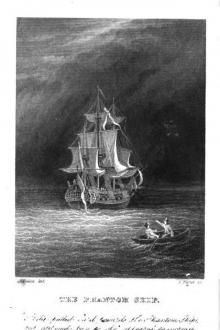 The Phantom Ship
The Phantom Ship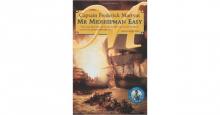 Mr. Midshipman Easy
Mr. Midshipman Easy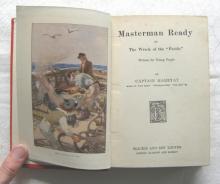 Masterman Ready; Or, The Wreck of the Pacific
Masterman Ready; Or, The Wreck of the Pacific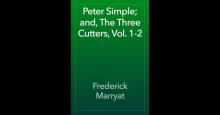 Peter Simple; and, The Three Cutters, Vol. 1-2
Peter Simple; and, The Three Cutters, Vol. 1-2 Travels and Adventures of Monsieur Violet
Travels and Adventures of Monsieur Violet Jacob Faithful
Jacob Faithful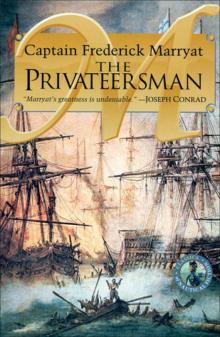 The Privateersman
The Privateersman Newton Forster
Newton Forster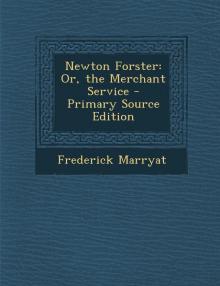 Newton Forster; Or, The Merchant Service
Newton Forster; Or, The Merchant Service The Pacha of Many Tales
The Pacha of Many Tales The Privateer's-Man, One hundred Years Ago
The Privateer's-Man, One hundred Years Ago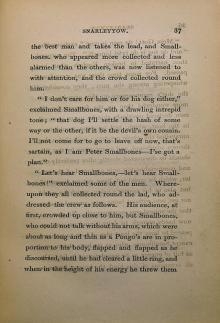 Snarleyyow, or, the Dog Fiend
Snarleyyow, or, the Dog Fiend Percival Keene
Percival Keene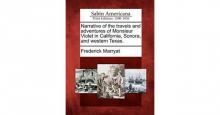 The Travels and Adventures of Monsieur Violet in California, Sonora, and Western Texas
The Travels and Adventures of Monsieur Violet in California, Sonora, and Western Texas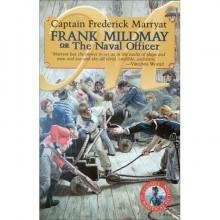 Frank Mildmay; Or, the Naval Officer
Frank Mildmay; Or, the Naval Officer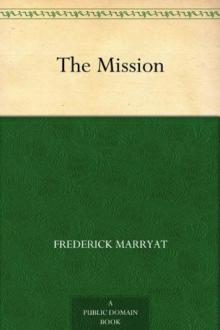 The Mission
The Mission